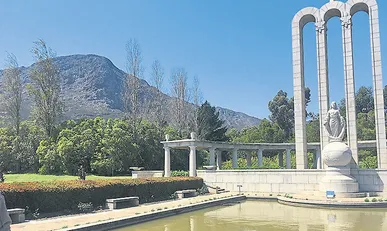
Towards understanding South Africa
Chris Sugden and Gavin Mitchell
Date posted: 1 Dec 2018
Cape Town South Africa is a bewildering mix of fabulously beautiful landscapes and vineyards which provide a resource for a booming tourist industry, within a few miles of vast stretches of shanty towns where people attracted by its stable economy come to seek well-being for themselves and their families.
The irony is that this ‘rainbow nation’ of many different languages, races and cultures did not start off as nation at all. Cape Town was only intended from the 16th to the 19th centuries to be a refuelling port for food and water for sailing ships of the merchant companies of Portugal, Holland, France and, finally, England en route to their trading empires in the East Indies and India.
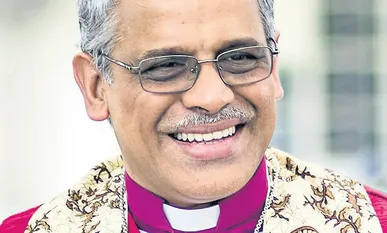
EFAC reorganises & renews its mission
Chris Sugden
Date posted: 1 Feb 2018
At a meeting of Trustees in October, the
Evangelical Fellowship
in
the Anglican
Communion (EFAC) restated its vision and
appointed new leadership.
EFAC’s purpose remains to encourage and
develop biblically
faithful
fellowship and
mission throughout the Anglican world. It
is adjusting its goals and strategies to best
serve its constituency, which has seen tremendous change since John Stott founded
the Fellowship in 1961.

Iraq: believers survive and thrive
Paul Perkin
Date posted: 1 Nov 2018
‘You can say you are not a man or a woman, you can say you are not a Kurd, but you cannot say you are not a Muslim; it’s in your DNA.’
This is according to a Muslim-background believer in Jesus (MBB), who indeed told his family he was now a believer in Isa [Jesus]. He came to Christ through an atheist newspaper telling the accounts of people who had turned from Islam to Jesus (the paper held no candle for any religion but was vaguely interested in those who converted from one to another!)
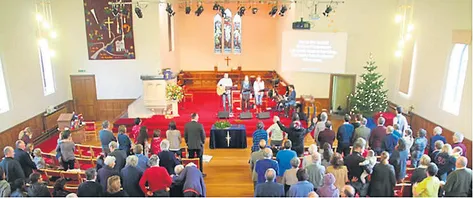
Scottish Anglican Network: contending & learning
The Revd David McCarthy
Date posted: 1 Oct 2018
St. Thomas’ Church, Edinburgh, has a long history as an evangelical congregation.
It was founded in 1844 as an Independent Anglican Church, following the introduction of the Oxford Movement to the Scottish Episcopal Church (SEC). It gradually grew closer to SEC from the 1940s onward. Rectors have included George Duncan, Gordon Bridger (later of Oak Hill College), John Wesson (later of Trinity College, Bristol) and Philip Hacking (later of Christ Church Fulwood, Sheffield).
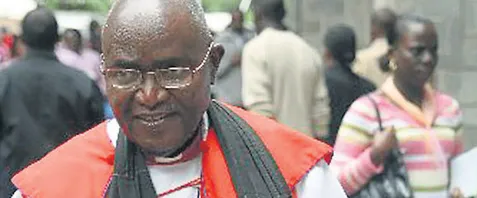
Why GAFCON?
Chris Sugden and Vinay Samuel
Date posted: 1 Aug 2018
‘Success has many fathers, but failure is an orphan.’
The successful conclusion of GAFCON 2018, ten years after its formal beginnings as a global Anglican movement that had its roots in, among others, the Lambeth Conference of 1988 of which Archbishop Manasses Kuria of Kenya said: ‘This was our Lambeth’ and (then Bishop) David Gitari of Kenya said: ‘Anyone who wants a resolution passed in 1998 will have to come to terms with the African bishops.’

Standing on the authority of God’s Word
Charles Raven
Date posted: 1 Sep 2018
In this column last month, Chris Sugden and Vinay Samuel helpfully answered the question ‘Why GAFCON ?’. This month, as the full significance of the third GAFCON conference held in June becomes clearer, I want to offer a personal reflection on the question of where GAFCON is going.
The short answer is nowhere! The appeal in GAFCON’s Letter to the Churches to the Archbishop of Canterbury to restore godly leadership has been ignored and there can be no doubt now that it is through GAFCON that the faithful Anglican tradition will be continued. The powers-that-be seem determined that the Communion should embrace the optional orthodoxy of ‘good disagreement’.

Building in Belfast
Dan & Susie Leafe
Date posted: 1 Jun 2018
It is an unfortunate irony that the historic Belfast shipyard of Harland & Wolff is most famous for a single notorious failure: the RMS Titanic.
The doomed White Star Liner has come to symbolise a bygone age and to become a byword for humanity’s hubris. But, notwithstanding that, Harland & Wolff, which when it launched the ‘Unsinkable’ had already been building ships for over a half a century, has gone on to do so to the present day. The area around the Belfast docks may have been rebranded the Titanic Quarter, but in reality it is a place where great successes have been built for over 150 years.
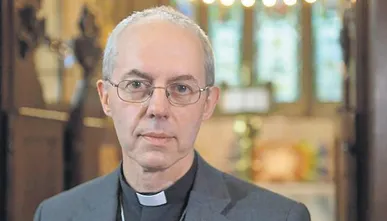
Global communion with colonial structure
Charles Raven
Date posted: 1 May 2018
In his insightful contribution for this column
last month, Chris Sugden showed that the
lack of accountability and anxiety about
brand protection revealed
in the Oxfam
scandal are also unresolved problems for
the Anglican Communion.
Both have a global reach and both have to
deal with imbalances of power and the need
for inclusive leadership.

Rwanda: recovering the Great Commission
Charles Raven
Date posted: 1 Mar 2018
In January two new Anglican Primates were elected, the Bishop of Maridi, Justin Badi Arama, as Archbishop of South Sudan and the Bishop of Shyira, Dr Laurent Mbanda, as Archbishop of Rwanda.
Both nations have suffered internecine violence, and by far the most notorious example remains the Rwandan genocide of 1994 in which an estimated 1 million people died. Given the long history of insecurity which predated South Sudan’s recent independence, internal strife was predictable, but Rwanda was an established kingdom well before the colonial era, in which different ethnic groups lived peacefully. Moreover, Rwanda was the home of a powerful revival in 1929 which spread spontaneously during the 1930s and became known as the East African Revival.

Leadership and the Oxfam scandal?
Chris Sugden
Date posted: 1 Apr 2018
The scandal surrounding Oxfam staff in Haiti in 2011 has brought to light the need for the leadership in global organisations to address the imbalance of power between well-resourced institutions and desperate people struggling to survive in a disaster zone.
At the heart of the issue is accountability. The history of Christian mission, and of the Anglican Communion in particular, suggests that accountability must be rooted in the local situation. Anglican bishops around the world long since ceased to be accountable to any UK-based ecclesial body. They are leaders in their own ‘provinces’ and accountable to their own people. Powerful charities, which are the 21st-century equivalents of 19th-century missionary societies, could do well to develop similar models of local accountability, to address the issues and implications of the imbalance of power and its misuse.